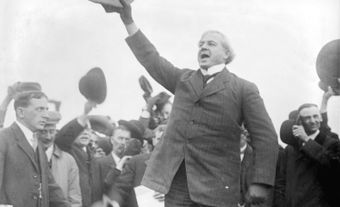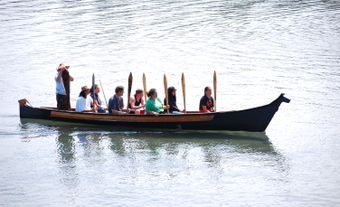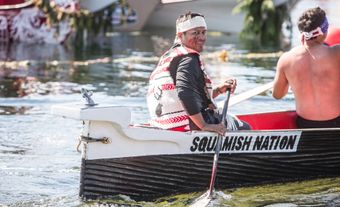Chilliwack, British Columbia, incorporated as a city in 1999, population 93,203 (2021 census), 83,788 (2016 census). The city of Chilliwack is located 100 km east of Vancouver on the south shore of the Fraser River. It is governed by a mayor and six councillors elected for four-year terms. The name is derived from the word Ts’elxwéyeqw. According to elder Albert Louie, in Halq’eméylem, the traditional language of the Stó:lō, the word means “going as far as you can go upriver” by canoe on the Chilliwack River.
History
Between 5,000 and 10,000 years ago, the Stó:lō of the Central Coast Salish first arrived in the area. When European settlers later arrived, it is estimated there may have been as many as 30,000 inhabitants in the region. By the 1860s, a handful of farms existed in the area. When incorporated in 1873, the township of Chilliwhack was the third oldest in British Columbia. Its townsite was originally known as Five Corners. In 1881, a large subdivision called Centreville was developed; it was incorporated as a city in 1908 and renamed Chilliwack (without the second “h” as in the former township's name). The township and city were reunited in 1980 to form the district municipality of Chilliwack. The district municipality became a city in 1999. The Chilliwack Museum is located in the old city hall (1912), now a national historic site (designated in 1984).
Economy
Agriculture is the leading resource sector in Chilliwack; much of the milk and dairy products consumed in the lower mainland originates here. Manufacturing is focused on farm products or inputs and, in the eastern half of the city, on logging. A Canadian Forces base at Vedder Crossing (10 km south) had a large military and civilian payroll before it closed in 1998. Beginning in 2003, the base was transformed into the Canada Education Park. It includes a campus for the University of the Fraser Valley as well as commercial and residential developments, including Garrison Crossing.
The tourism industry, particularly in the Cultus Lake area to the south, also supports the local economy.

 Share on Facebook
Share on Facebook Share on X
Share on X Share by Email
Share by Email Share on Google Classroom
Share on Google Classroom



